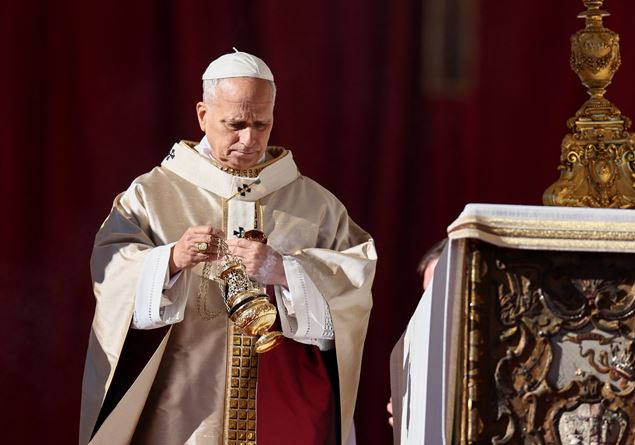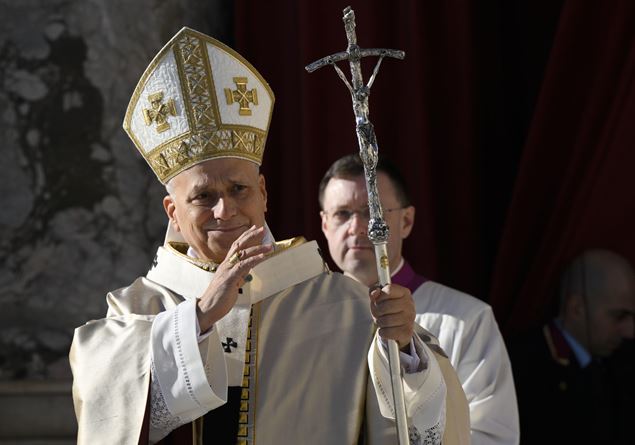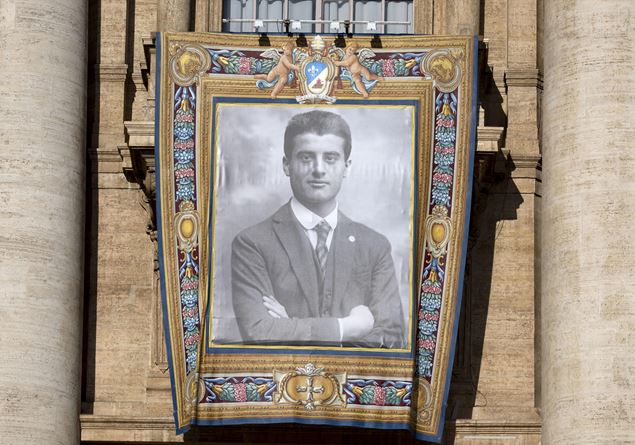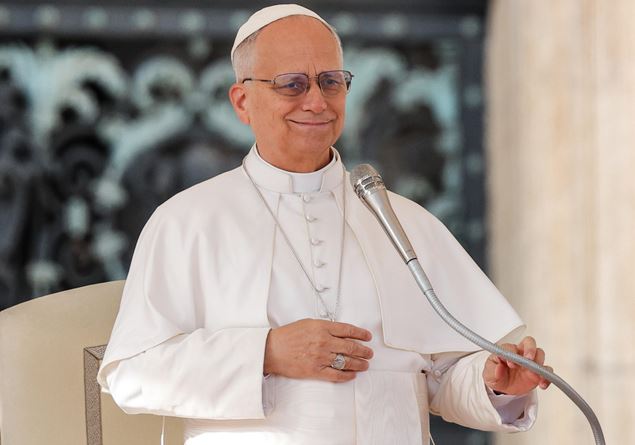Dear young people, good morning and welcome!
You have been called to be part of a consultative body, the International Youth Advisory Body (IYAB), linked to the Dicastery for the Laity, Family and Life, which has the aim of making known to the Holy See the “point of view of young people” on various topics that are at the heart of the mission of the Church.
I thank you for your availability and your commitment to dialogue and reflect together, as you have done in recent days, to offer your contribution to the Pope’s collaborators in the Roman Curia. I share with you three brief reflections on participation, synodality, mission.
Participation
To carry out your task, you are called first of all to feel like participants in the life and mission of the Church, which, as you know well, is a universal mission, that is, addressed to all men and women, of every geographical area, of every culture and social condition. Where does authentic ecclesial participation come from?
I would say that it comes from closeness to the Heart of Christ. That is, it has a spiritual root, not an ideological or political one. In his prayer addressed to the Father shortly before dying, transmitted to us by the Gospel of John, Jesus says: «I do not pray only for these, but also for those who through their word will believe in me; so that they may all be one” (Jn 17,20-21).
Jesus is not only interested in the small circle of disciples before him, but looks beyond: his thoughts go to all men, even those far away, even those who will come in the future. He would like everyone to open up to the word of salvation that his disciples will bring and for everyone to find in it the unity of faith and mutual love. In a word, the Lord always carries the whole world in his Heart. Here lies the source of participation.
Those who are close to Jesus, those who become his friends in prayer, through the Sacraments and in daily life, begin to feel as He feels; he begins to carry the whole world in his heart: nothing is foreign to him, no person is indifferent to him.
The suffering of others, their needs, their aspirations concern him, touch him. Hence the desire to participate, to feel part of the universal mission of the Church, aimed at everyone. This involvement is also a sign of human and spiritual maturity: the child is only concerned with his own needs, the mature person knows how to share the problems of others and makes them his own. You too, therefore, are called to this maturity and are invited to “immerse yourselves” in Christ, so as to feel as He feels and see as He sees.
In particular, you are interested in the expectations and difficulties of young people, of all the young people of our time, who I urge you to look at with the compassion of Christ, trying to imagine how, starting from our faith, the Church can reach out to them.
Synodality
A second aspect: synodality. You know that synodality is one of the ways of implementing the nature of the Church which is communion.
In the image of the Holy Trinity, the Church is also a communion of people: faithful of every age, language and nationality who proceed together, who enrich each other, who share the spiritual goods of each one. In the Synodal Church, therefore, we want to listen to what the Holy Spirit says to young people, we want to welcome their charisms, the specific gifts of their age and their sensitivity. In the Synodal Church, young people are also called to be spokespersons for their peers.
Through you, in fact, we also want to pay attention to the voices of the weakest, poorest young people, those alone, refugees, those who struggle to integrate into society and access educational opportunities, voices that are too often drowned out by the noise of the powerful, of those who are successful, of those who live in “exclusive” realities.
On the other hand, the Synodal Church is also a challenge for young people, a provocation, we could say, because it pushes them not to live their faith in isolation.
You know that in recent years many young people have approached the faith through social media, through successful programs and very popular Christian witnesses on the web. There is the risk, however, that the faith known online remains only an individual experience, which reassures intellectually and emotionally, but never becomes a “body”, it remains disembodied, that is, detached from the “ecclesial body”, it is not lived with others, in the concreteness of life situations, relationships and real sharing.
Social media algorithms too often only create a sounding board for the subject, that is, they capture personal preferences and tastes and “send them back” amplified, enriched with captivating proposals.
But everyone remains alone with themselves, a prisoner of their own inclinations and projections. In this sense, the lived experiences of synodality help overcome the barriers of the ego and stimulate young people to become effective members of the family of Jesus Christ to «live our faith together and express our love in a community life, sharing our affection, our time, our faith and our concerns with other young people.
The Church offers many different opportunities to live the faith in community, because together everything is easier” (Post-Synodal Apostolic Exhortation Christus vivit, 164).
Mission
One last aspect: the mission. Synodality, when authentic, leads to mission. In fact, at the heart of synodality there is the action of the Holy Spirit. This is not an assembly procedure, but a way of making space for God’s action, through listening to the Spirit.
The Holy Spirit always wants to “guide us to the whole truth” (see Jn 16:13), that is, to welcome Jesus who is the Truth ever more deeply, and “reminds us of everything he said to us” (see Jn 14:26), making his words relevant today. The Spirit, therefore, orients us to the mission. You too will have the opportunity to experience how common prayer, listening and discussion help to understand how to present the Gospel in today’s world.
This is ecclesial discernment for the mission: understanding in every era how to make the Gospel reach everyone. All this requires from you young people a heart willing to listen to both the “inspirations” of the Spirit and the profound “aspirations” of each person, beyond appearances, to seek the true answers that give meaning to life; a heart open to God’s call and not fixed in one’s own plans, docile to understanding and pitying before judging. The perspective of the mission also requires freedom from fears, because the Lord loves to call us to travel new paths. And you young people can be, in this sense, masters of creativity and courage.
I thank you, therefore, for the contribution you will make to the mission: it will be a supplement of energy and impetus to the missionary heart of the Church. Your organization, in fact, is part of that broader spiritual movement – which includes WYDs, ordinary youth ministry, new youth movements – which always keeps the Church young.
Dear young people, you represent many of your peers and through you they too can “speak” to the Church. Rest assured that your voice is heard and taken seriously. Your contribution, your presence is precious. May the Holy Spirit guide you, give you light and strengthen you in the joy of Christian testimony. I bless you from the bottom of my heart.








